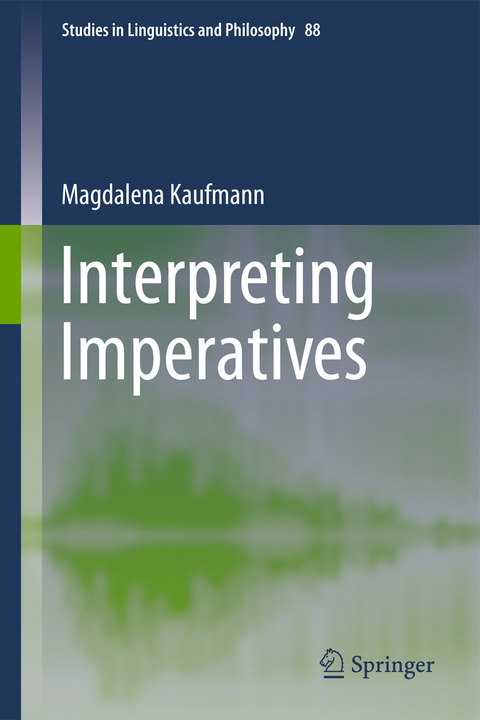
Interpreting Imperatives
Seiten
2013
Springer (Verlag)
978-94-007-3757-0 (ISBN)
Springer (Verlag)
978-94-007-3757-0 (ISBN)
The author shows how these two elements can help explain the varied effects imperatives have, depending on their usage context.Imperatives have been viewed as elusive components of language because they have a range of functions that makes them difficult to unify theoretically.
Imperative clauses are recognized as one of the major clause types alongside those known as declarative and interrogative. Nevertheless, they are still an enigma in the study of meaning, which relies largely on either the concept of truth conditions or the concept of information growth—neither of which are easily applied to imperatives. This book puts forward a fresh perspective. It analyzes imperatives in terms of modalized propositions, and identifies an additional, presuppositional, meaning component that makes an assertive interpretation inappropriate. The author shows how these two elements can help explain the varied effects imperatives have, depending on their usage context.
Imperatives have been viewed as elusive components of language because they have a range of functions that makes them difficult to unify theoretically. This fresh view of the semantics-pragmatics interface allows for a uniform semantic analysis while accounting for the pragmatic versatility of imperatives.
Imperative clauses are recognized as one of the major clause types alongside those known as declarative and interrogative. Nevertheless, they are still an enigma in the study of meaning, which relies largely on either the concept of truth conditions or the concept of information growth—neither of which are easily applied to imperatives. This book puts forward a fresh perspective. It analyzes imperatives in terms of modalized propositions, and identifies an additional, presuppositional, meaning component that makes an assertive interpretation inappropriate. The author shows how these two elements can help explain the varied effects imperatives have, depending on their usage context.
Imperatives have been viewed as elusive components of language because they have a range of functions that makes them difficult to unify theoretically. This fresh view of the semantics-pragmatics interface allows for a uniform semantic analysis while accounting for the pragmatic versatility of imperatives.
1. Setting the Scene .- 2. How to Handle Imperatives in Semantics .- 3. Imperatives as Graded Modals .- 4. From Modalized Propositions to Speech Acts .- 5. Possibility Readings .- Embedding Imperatives .- References .- Index.
| Reihe/Serie | Studies in Linguistics and Philosophy ; 88 |
|---|---|
| Zusatzinfo | XII, 272 p. |
| Verlagsort | Dordrecht |
| Sprache | englisch |
| Maße | 155 x 235 mm |
| Themenwelt | Schulbuch / Wörterbuch ► Lexikon / Chroniken |
| Geisteswissenschaften ► Philosophie ► Erkenntnistheorie / Wissenschaftstheorie | |
| Geisteswissenschaften ► Philosophie ► Sprachphilosophie | |
| Geisteswissenschaften ► Sprach- / Literaturwissenschaft ► Sprachwissenschaft | |
| Sozialwissenschaften | |
| ISBN-10 | 94-007-3757-2 / 9400737572 |
| ISBN-13 | 978-94-007-3757-0 / 9789400737570 |
| Zustand | Neuware |
| Haben Sie eine Frage zum Produkt? |
Mehr entdecken
aus dem Bereich
aus dem Bereich
die Grundlegung der modernen Philosophie
Buch | Softcover (2023)
C.H.Beck (Verlag)
CHF 25,20
Buch | Softcover (2023)
Reclam, Philipp (Verlag)
CHF 9,80

![Was heißt Denken?. Vorlesung Wintersemester 1951/52. [Was bedeutet das alles?] - Martin Heidegger](/media/113619842)
